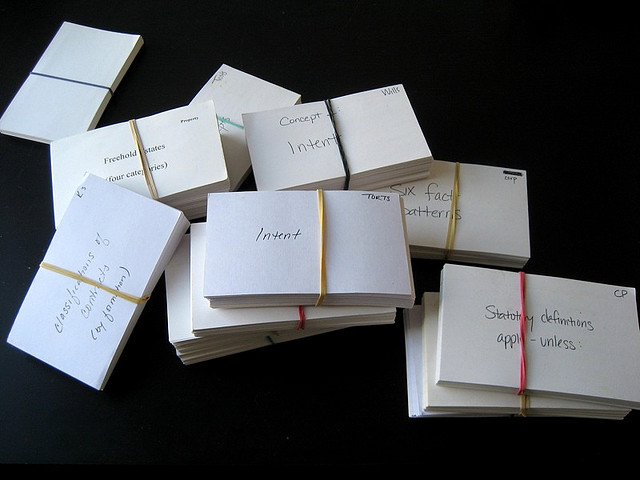The Video Learning Revolution

Photo Credit: Yuxuan.fishy.Wang
From word of mouth to papyrus to bound textbooks, learning has evolved rapidly through the millennia. With the rate of consumption of Internet education material skyrocketing in the last decade, it seems we’re now on the cutting edge of information gathering: online video. YouTube, host to 6 billion unique visitors every month, has peaked as the medium of choice for these 21st century Internet edu-gurus.
The Appeal of Video: Passive Learning
Lugging a heavy textbook from school, or pulling it out of the cabinet is starting to go out of fashion for students of the digital age. A phrase often heard in the middle school classroom is “that’s so much work,” referring to the arduous process of taking handwritten notes or reading through textbook chapters. With hyperactive stimuli constantly bombarding their focus, gen Z’ers cannot be expected to maintain a distraction-free analog environment. The Internet browser provides students with a familiar atmosphere where they can absorb information just like they’re used to outside the school setting. I call it passive learning because information is brought straight to the user in the form of video content rather than it being actively sought out by a text-based reader.
From Novice to Expert in Three Easy Channels
I hope you didn’t take away from the last paragraph that I’m against using Internet to learn: quite the contrary! Online video education can be a powerful tool for gaining and retaining information on an almost limitless number of topics. Nowadays, it is my first choice if I want to brush up on the sciences or totally immerse myself in a fascinating new subject. Through extensive research, as well as personal trial and error, I have narrowed down my most frequented learning channels to just three sites. They are listed in the order that I feel a student new to the material should be visiting them according to the outside-in model of learning.
Disclaimer: Regardless of the method of information consumption (text or video), you still need to take active notes on the concepts in order to truly master the material.
Crash Course
Khan Academy
Salman Khan flipped the classroom on its head by providing his own lectures completely for free online. An MIT math and engineering graduate, Khan specializes in math and the sciences, though humanities and economics lectures are available as well (he has an MBA from Harvard). Khan utilizes a virtual blackboard to accompany his patient, in-depth explanations, allowing the student to rewind and re-watch anything he or she might have missed the first time. For math and several of the science courses, there are additional interactive practice problems available to test your skills while earning badges and upgrades. Whereas Crash Course gives you a general introduction to a topic, Khan Academy dives deeper into the class by highlighting specific terminology and advanced concepts. In my opinion, the courses are sufficient replacements for most comparable high school classes, especially in math, chemistry, and physics. If a secondary school level understanding is still not enough, let’s continue to the highest level of knowledge available on the Internet: free university courses.
MOOC (Academic Earth)
A massive open online course, or MOOC, is the new standard for free at-home learning. Renowned universities around the globe, including most of the Ivy League schools, post entire courses online for free. Yes, it is completely free of charge to watch all the lectures, complete the homework assignments, and take the exams as if you were really paying $50,000 per year for tuition. Academic Earth is an index of most of the courses offered from colleges worldwide and will assuredly quench any thirst for knowledge you may have.
With these three resources and a focused a workspace, you should be able to master any topic that comes your way. Become a part of the video learning revolution and prove the to the last generation that we are not dumbing ourselves down, but rather evolving.





No comments